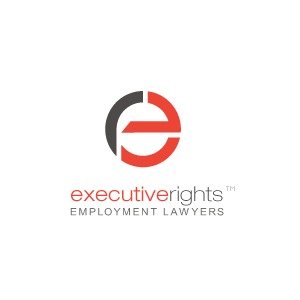Best Hiring & Firing Lawyers in Sydney
Share your needs with us, get contacted by law firms.
Free. Takes 2 min.
List of the best lawyers in Sydney, Australia
About Hiring & Firing Law in Sydney, Australia
In Sydney, Australia, hiring and firing practices are governed by a combination of federal and state laws designed to protect both employers and employees. These laws provide a legal framework for recruitment, employment contracts, workplace conduct, terminations, and dismissals. Employers in Sydney must comply with a range of legal obligations, including those related to anti-discrimination, unfair dismissal, and workplace rights. These laws aim to ensure fair treatment throughout the employment lifecycle, from hiring to termination, and provide remedies when rights are breached.
Why You May Need a Lawyer
Legal advice may be crucial in several scenarios related to hiring and firing in Sydney. Common situations include negotiating employment contracts, addressing workplace disputes or issues related to discrimination, handling unfair dismissal claims, and ensuring compliance with employment laws. Employers may need guidance on constructing policies that comply with legal standards, while employees may seek legal assistance to understand their rights. Lawyers with expertise in employment law can navigate the complexity of these issues and provide tailored advice to help resolve disputes effectively.
Local Laws Overview
The key aspects of local laws relevant to hiring and firing in Sydney include:
- The Fair Work Act 2009: This federal legislation outlines minimum employment conditions and governs issues such as unfair dismissal, workplace bullying, and enterprise agreements.
- Anti-Discrimination Laws: These laws prevent discrimination based on attributes such as race, gender, age, disability, and religion, both in hiring practices and during employment.
- Termination Obligations: Employers must comply with the National Employment Standards (NES) regarding notice periods and provide valid reasons for terminations to avoid unfair dismissal claims.
- Workplace Health and Safety Regulations: These ensure that workplaces are safe and that employers take reasonable precautions to minimize risks.
Frequently Asked Questions
What constitutes unfair dismissal in Sydney?
Unfair dismissal occurs when an employee's termination is harsh, unjust, or unreasonable, or not a case of genuine redundancy. To be eligible to claim, the employee must have completed the minimum employment period and must be covered by the national workplace relations system.
What are the legal requirements for employment contracts in Sydney?
While written contracts are not mandatory, they are highly recommended to clearly outline employment terms such as job duties, pay rates, and notice periods for termination. This helps prevent misunderstandings and disputes.
How does redundancy differ from dismissal?
Redundancy occurs when a position is no longer required due to operational changes, not due to the employee's performance or conduct. Employers must follow specific procedures and may need to provide redundancy pay.
Can employers ask about personal characteristics in job interviews?
Employers should avoid questions about personal characteristics that are irrelevant to the job, such as age, marital status, or religion, to comply with anti-discrimination laws.
What steps should an employer take before dismissing an employee?
Employers should conduct a fair process including documenting issues, providing warnings, and offering an opportunity for the employee to respond before making a dismissal decision.
How can employees address workplace bullying?
Employees can report bullying to their employer and may also seek resolution through the Fair Work Commission if the matter isn't resolved internally.
What is the role of the Fair Work Commission?
The Fair Work Commission deals with disputes, awards, and agreements and handles matters such as unfair dismissal and workplace bullying claims.
Are casual employees entitled to unfair dismissal protection?
Casual employees are generally not entitled to unfair dismissal protection unless they have been employed on a regular and systematic basis and have a reasonable expectation of continuing employment.
What is adverse action, and how can it affect employment?
Adverse action includes actions such as discrimination, altering an employee's job to their detriment, or dismissing an employee for making a complaint. It is prohibited under the Fair Work Act.
How should employers handle performance management?
Employers should approach performance management transparently, provide clear feedback, set measurable goals, and allow employees the opportunity to improve through documented performance plans.
Additional Resources
For further assistance, individuals can refer to several resources such as:
- Fair Work Ombudsman: Provides information and advice on workplace rights and obligations.
- Australian Human Rights Commission: Offers guidance on anti-discrimination and human rights laws.
- LawAccess NSW: A free government legal service providing information on workplace issues.
- Community Legal Centres: Provide free legal advice to individuals in need, including employment law matters.
Next Steps
If you require legal assistance regarding hiring and firing in Sydney, consider taking the following steps:
- Identify Your Needs: Clearly outline your issue and what you seek to achieve.
- Consult a Professional: Contact a lawyer specializing in employment law to discuss your case. They can help you understand your rights and obligations, and assist in crafting a legal strategy.
- Documentation: Gather all relevant documents such as employment contracts, communication records, and any documentation of disputes.
- Stay Informed: Regularly review updated laws and guidelines to remain compliant and proactive in employment practices.
Lawzana helps you find the best lawyers and law firms in Sydney through a curated and pre-screened list of qualified legal professionals. Our platform offers rankings and detailed profiles of attorneys and law firms, allowing you to compare based on practice areas, including Hiring & Firing, experience, and client feedback.
Each profile includes a description of the firm's areas of practice, client reviews, team members and partners, year of establishment, spoken languages, office locations, contact information, social media presence, and any published articles or resources. Most firms on our platform speak English and are experienced in both local and international legal matters.
Get a quote from top-rated law firms in Sydney, Australia — quickly, securely, and without unnecessary hassle.
Disclaimer:
The information provided on this page is for general informational purposes only and does not constitute legal advice. While we strive to ensure the accuracy and relevance of the content, legal information may change over time, and interpretations of the law can vary. You should always consult with a qualified legal professional for advice specific to your situation.
We disclaim all liability for actions taken or not taken based on the content of this page. If you believe any information is incorrect or outdated, please contact us, and we will review and update it where appropriate.
















